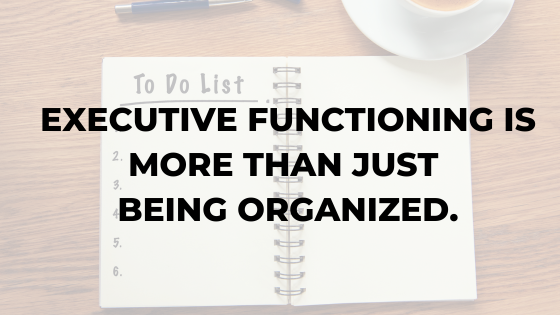Most K-12 teams think they’re working on executive functioning with their students, but they’re still seeing students continue to struggle with:
- Time-management
- Self-regulation
- Social skills
- Keeping track of work
- Following directions in class
- Managing personal belongings
That’s because executive functioning support in the school systems often consists of planners and organizers.
While organization is one piece of executive functioning, it’s just a small piece of the puzzle.
In order to help students develop this critical set of mental processes, people supporting students need to understand what executive functioning is.
This video clip is taken from my free online training:
How to be neurodiversity-affirming and evidence based (by supporting executive functioning).
In this free training I reveal:
- Why kids continue to experience anxiety or behavioral challenges, even though they’re going to therapy or have a behavior plan.
- Common mistakes multidisciplinary teams make when teaching executive functioning (and why lists, planners, and behavior charts aren’t working).
- Why kids continue to struggle with problem-solving, and friendships, even though they’re going to therapy and social skills groups.

